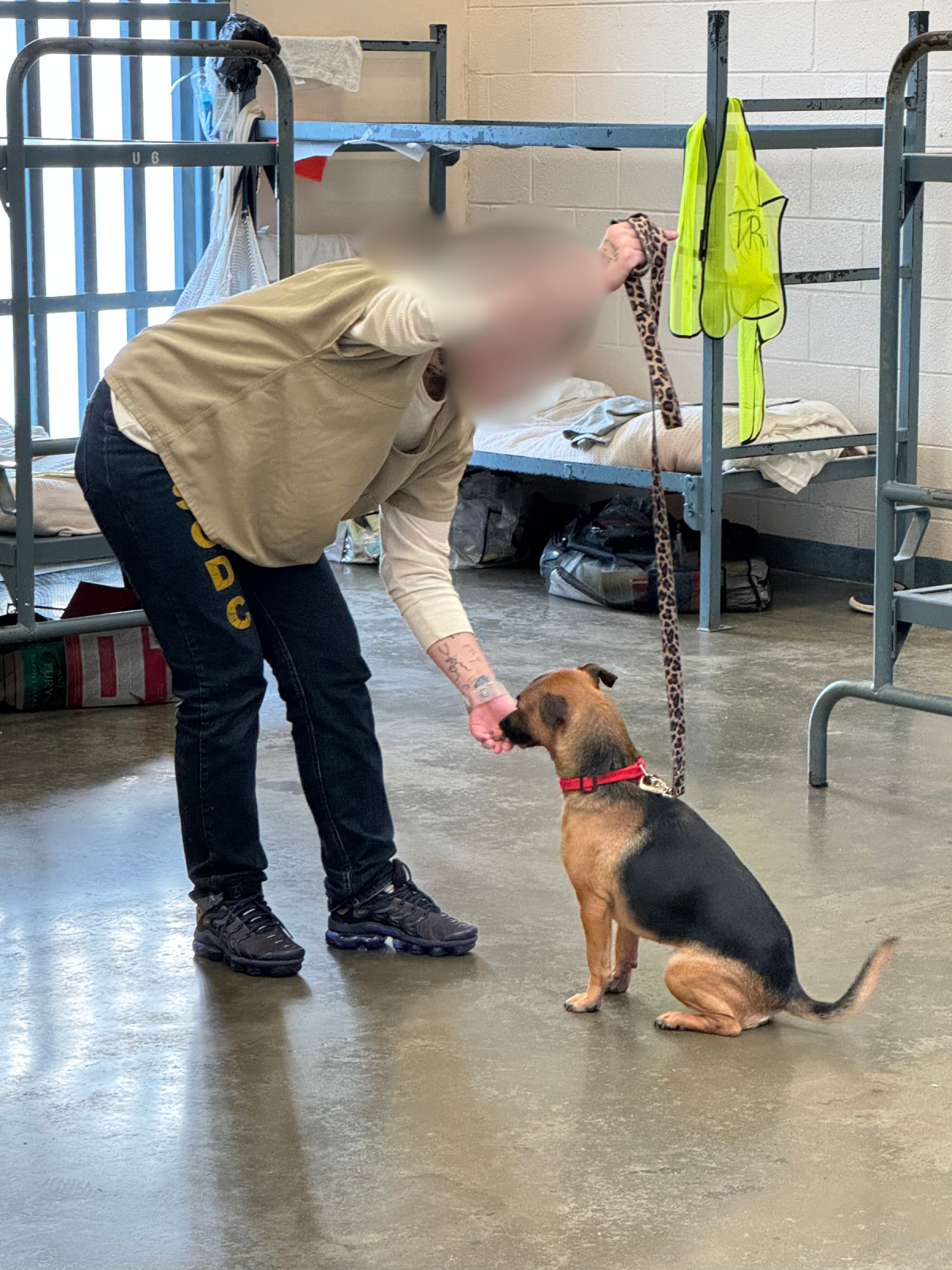Community organizations are partnering to build relationships between incarcerated women and shelter dogs through an intensive training program.
The Humane Society of Memphis and Shelby County, Shelby County Division of Corrections, and Allegiance Canine recently announced the launch of the Pawsitive Training Program designed to emphasize the positive impact on both parties.
The program takes cues from a 2021 University of Washington study that found that programs like these help incarcerated people and pets alike.
“Studies have shown that canine training programs have mutual benefits,” said Deputy administrator of Shelby County Office of Reentry, Dominique Winfrey-McKinnie. “ The programs enhance inmates’ social and emotional IQ, accountability and sense of responsibility, and the trained dogs may find their forever homes quicker. It’s a beautiful exchange of empathy and understanding that transforms both hearts and minds.”
Winfrey-McKinnie said this is an “innovative and creative” initiative for Shelby County as it enhances the inmate population through rehabilitation programs. She notes that the Division of Corrections has done a “phenomenal” job with programs for women, however much of the training focuses on “hard skill” trades such as operating forklifts, welding and barbering.
“We wanted programs that worked on responsibility and accountability and teach interpersonal skills and emotional intelligence,” Winfrey-McKinnie said.
Ellen Zahariadis, executive director of the Humane Society of Memphis and Shelby County said they believe in the “transformative power of compassion,” and this program allows participants to build meaningful connections.
“Together, we are creating second chances for everyone involved,” Zahariadis said.
During the six-week program five dogs will be paired with five groups of two women. Organizers say they will go through a “rigorous interview and assessment process, while the dogs will undergo training from Allegiance Canine. All training will be held at the Shelby County Division of Corrections.
Zahariadis said the dogs will benefit from this “one-on-one, intensive training” as they’ll “learn their manners” before they’re adopted. In turn, this will make them more likely to be adopted by people who are looking to bring dogs into their homes.
“It’ll give them a better sense of being in a home and interacting with people out in the community,” Zahariadis said. “Anytime our animals are able to spend more time with people and have those kinds of interactions — it’s so much better for them.”
The dogs will learn marker words, recall and sit commands, manners around humans and other dogs, and more. Zahariadis added the participants also learn patience and other traits through positive reinforcement, which is the primary method used.
“It really reinforces those personal skills in people. It could also turn out to be a career path for somebody when they’re learning how to work with animals,” Zahariadis said.
Not only will the program help women with accountability and responsibility, Winfrey-McKinnie said this program will also help participants to engage in meaningful relationships.
“Although it’s with an animal, animals have emotions, animals have character — they have personality,” Winfrey-McKinnie said. “Learning how to navigate those things while also being gentle, yet firm — it’s a skill that’s necessary for all of us as adults, which will be helpful for them as well when they come home.”
Shelby County Mayor Lee Harris calls this program a “win-win training initiative.”
“Not only do inmates get to assist in transforming the lives of shelter dogs, but they also gain crucial skills and experience as canine trainers that may lead to future employment,” Harris said.

 Photo by The Lucky Neko on Unsplash
Photo by The Lucky Neko on Unsplash